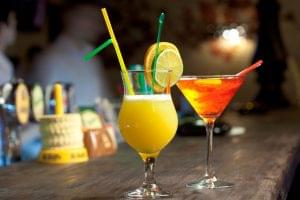Cold drink, hot consequences: iced refreshments can cause heart rhythm disturbances
It may sound bizarre at first, but it’s scientifically proven: cold drinks and food can sometimes trigger heart rhythm disturbances, according to a recent American study. The phenomenon is called “cold drink heart” and most often occurs in people with atrial fibrillation.
 According to the study, published in the Journal of Cardiovascular Electrophysiology, this is the first study to specifically examine the effects of cold foods and drinks on the electrical function of the heart. Kaiser Permanente researchers collected the experiences of 101 patients with atrial fibrillation who reported that their symptoms occurred after consuming ice-cold water, ice cream or other chilled foods.
According to the study, published in the Journal of Cardiovascular Electrophysiology, this is the first study to specifically examine the effects of cold foods and drinks on the electrical function of the heart. Kaiser Permanente researchers collected the experiences of 101 patients with atrial fibrillation who reported that their symptoms occurred after consuming ice-cold water, ice cream or other chilled foods.
Iced tea, ice cream, cocktails – can trigger heart arrhythmia
Half of the participants reported that the heart arrhythmia occurred only after consuming cold foods or drinks, while others experienced the phenomenon regardless of this. The most common triggers included ice water, milk, yogurt, smoothies and ice cream – especially when consumed after exercise.
According to the research, symptoms most often appeared a few seconds or minutes after consumption. However, nearly 97 percent of the participants said that they did not always experience atrial fibrillation after consuming a cold drink, so the phenomenon is unpredictable.
Solution: avoid, warm up, slow down
86.4 percent of the respondents reported that avoiding cold foods and drinks significantly alleviated their symptoms or eliminated them completely. Several people have also mentioned that eating more slowly, avoiding straws, and drinking beverages at room temperature have also helped prevent episodes.
According to Dr. David Vinson, an emergency room physician and the lead author of the study, patients have been reporting similar complaints for decades, but little attention has been paid to this possible connection. Now, however, based on experience, it appears that a rare but real physiological reaction does indeed exist.
Related news
Health is decided at the family table – dietitians show the everyday application of the SMART PLATE® nutritional recommendation
🎧 Hallgasd a cikket: Lejátszás Szünet Folytatás Leállítás Nyelv: Auto…
Read more >Related news
The Store of the Future opens again at the SIRHA Budapest exhibition! (Part 1)
🎧 Hallgasd a cikket: Lejátszás Szünet Folytatás Leállítás Nyelv: Auto…
Read more >Cheese-cocoa-peach jam: these are the most popular cookie flavors
🎧 Hallgasd a cikket: Lejátszás Szünet Folytatás Leállítás Nyelv: Auto…
Read more >







